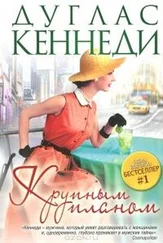Дуглас Кеннеди - Five Days
Здесь есть возможность читать онлайн «Дуглас Кеннеди - Five Days» весь текст электронной книги совершенно бесплатно (целиком полную версию без сокращений). В некоторых случаях можно слушать аудио, скачать через торрент в формате fb2 и присутствует краткое содержание. Год выпуска: 2015, Жанр: Современная проза, на английском языке. Описание произведения, (предисловие) а так же отзывы посетителей доступны на портале библиотеки ЛибКат.
- Название:Five Days
- Автор:
- Жанр:
- Год:2015
- ISBN:нет данных
- Рейтинг книги:4 / 5. Голосов: 1
-
Избранное:Добавить в избранное
- Отзывы:
-
Ваша оценка:
- 80
- 1
- 2
- 3
- 4
- 5
Five Days: краткое содержание, описание и аннотация
Предлагаем к чтению аннотацию, описание, краткое содержание или предисловие (зависит от того, что написал сам автор книги «Five Days»). Если вы не нашли необходимую информацию о книге — напишите в комментариях, мы постараемся отыскать её.
Five Days — читать онлайн бесплатно полную книгу (весь текст) целиком
Ниже представлен текст книги, разбитый по страницам. Система сохранения места последней прочитанной страницы, позволяет с удобством читать онлайн бесплатно книгу «Five Days», без необходимости каждый раз заново искать на чём Вы остановились. Поставьте закладку, и сможете в любой момент перейти на страницу, на которой закончили чтение.
Интервал:
Закладка:
‘That really intrigued me as well,’ I said. ‘How he was able to say so much about these two sisters and the times they passed through in such a compressed way, and with such descriptive precision.’
‘This is one of those rare instances when you can actually say there’s not a wasted word in the novel, along with this absolute clear sightedness about the way people talk themselves into lives they so don’t want.’
‘And by the end, we really feel we know these two women so desperately well. Because their lives and choices are a reflection of so many of our own wrong choices, and the way despair and disappointment color all our lives.’
‘I’ll drink to that,’ Lucy said as our two glasses of wine arrived.
Lucy and I were sitting in a booth in the Newcastle Publick House — a rather decent local tavern, where the din was never so overwhelming that you couldn’t have a conversation — engaged in our weekly book talk. Actually ‘book talk’ makes this weekly get-together sound formal, rule-bound. The truth is, though we have been having this Thursday get-together for over a year, the only principle that we follow is that the first part of the conversation is all about the novel we have agreed to read that week. That’s right — we try to read a different novel every week, though when we tackled The Brothers Karamazov a few months ago we gave ourselves a month to work through that mammoth enterprise. The only other rule we have is that we take turns choosing the book under discussion and never raise objections if it is out of what Lucy once dubbed ‘our respective literary comfort zones’. The truth is, we both share a similar sensibility when it comes to novels. No fantasy. No science fiction (though we did, at my suggestion, read Ray Bradbury’s The Martian Chronicles — which we both agreed had more to do with things mid-century American than actual extraterrestrial matters). And no treacly romantic stuff. Having discovered early on that we both read to find windows into our own dilemmas, our choices (outside of The Brothers Karamazov — my idea — and Gravity’s Rainbow — Lucy’s suggestion, and a book which we spent four evenings trying to understand) have largely centered around books which reflect the difficulties inherent in day-to-day life. So we’ve veered towards novels about family complexities (Dombey and Son), money complexities (The Way We Live Now), state-of-the-nation complexities (An American Tragedy, Babbitt), and (no surprise here) marital complexities (The War Between the Tates, Couples, Madame Bovary). We always spend around ninety minutes each week talking animatedly about the novel under discussion — though these Thursday rendezvous (which inevitably stretch to three hours) are also an opportunity for us to catch up with what Lucy once elegantly called ‘our ongoing weather systems’; the stuff that has seemed to constantly circle around our respective lives.
Lucy is a year my senior. She is about the smartest person I know. She went to Smith, joined the Peace Corps, taught in difficult places like The Gambia and Burkina Faso (I had to check out a map to see where that was), then traveled the world for a year. Upon returning to her native Boston she promptly fell in love with a PhD candidate at Harvard named Harry Ricks. Harry landed a job teaching American history at Colby just after he got his doctorate. Lucy retrained in library science and also found a job at the college. Then she lost two pregnancies back to back — the first at three months, the second (even more heartbreakingly) at eight months. Then her newly tenured husband ran off with a colleague (a dance instructor). Then she was badly advised legally and came away from the marriage with virtually nothing. Then she decided that staying at Colby was emotionally impossible — for all sorts of obvious reasons. So she packed up her decade-old Toyota with her worldly goods and headed down to Damariscotta after landing a job at the local high school, running their library.
She was thirty-six when she got here — and I met her during one of her weekend ‘extra money’ shifts at the library in the center of town. We became fast friends. She is the one and only person in the world with whom I confide — and she also knows she can talk with me about virtually anything. Dan has always been pleasant and reasonably welcoming towards Lucy — especially as she usually spends part of Christmas Day with us (she has no direct family of her own). But he is also a little suspicious of her, as he knows she is my ally. Just as he senses what I know Lucy thinks, but has never articulated: that Dan and I are a mismatch. That’s been one of the unwritten rules of our friendship: we tell ourselves everything that we want to share. We ask advice and give it reciprocally. But we each stop short of saying what we really feel about the other’s stuff. Lucy, for example, had a two-year relationship with a wildly inappropriate man named David Robby — a would-be writer who’d fled a bad marriage and a failed career in advertising, and was one of those guys who had just enough of a trust fund to ruin him. Coastal Maine is full of metropolitan refugees like David — whose personal or professional life (or both) have flat-lined and who have come to our corner of the northeast to reinvent themselves. The problem is: Maine is quiet. And underworked. And largely underpaid. Its visual pleasures — the ravishing, primary sweep of its seascape, the verdancy of its terrain, its sense of space and isolation and extremity (especially in winter) — are counterbalanced by the fact that life here throws you back on your own devices, on yourself. And David — an outwardly charming, but clearly unsettled man — was about the last thing my friend needed in her life back then. Still, between the divorce and the lost babies, and the knowledge that her dream of motherhood might be finished, David was, for a time, something of a recompense (even though I found him creepy). But I never said a word against him. Just as Lucy never made any comments about Dan. Was this wrong — a personal confederacy based on being there to hear each other out, but not to ram home certain self-evident verities? I think we trusted each other because we didn’t blitzkrieg each other with lacerating observations — because we both understood our different fragilities and were best keeping ourselves buoyed.
But the book under discussion tonight — Richard Yates’s The Easter Parade — was one of those profoundly disquieting novels that hit you with the most lacerating (and unsettlingly accurate) observations about the human condition.
‘I read somewhere that Richard Yates wasn’t just a serious alcoholic, but a manic depressive as well,’ Lucy said.
‘Wasn’t there that well-reviewed biography of him a few years back,’ I said, ‘which talked about how, even when he was on a binge — which was most of the time — he somehow managed to grind out two hundred words a day?’
‘Words were obviously a refuge for him from all of life’s harder realities.’
‘Or maybe the way he tried to make sense of all the craziness he observed within himself and others. Do you know what the biography was called? A Terrible Honesty.’
‘Well, that is, without question, the defining strength of The Easter Parade. It pulls no punches when it comes to examining why Sara and Emily Grimes lived such unhappy lives.’
‘And the genius of the book,’ I said, ‘is that even though Emily becomes a desperate alcoholic, she’s never painted as sad or pathetic. Yet Yates also makes it so clear that the two sisters have nobody but themselves to blame for their disappointments.’
‘His psychological clarity and his humanity are everywhere. As you said, we all know these women because they are, more or less, reflections of ourselves. It’s what Emily says to her niece’s husband at the end of the book, “I’m almost fifty years old and I’ve never understood anything in my whole life.” That’s the hard truth at the center of the novel. There are no solutions when it comes to life. There’s only mess and muddle.’
Читать дальшеИнтервал:
Закладка:
Похожие книги на «Five Days»
Представляем Вашему вниманию похожие книги на «Five Days» списком для выбора. Мы отобрали схожую по названию и смыслу литературу в надежде предоставить читателям больше вариантов отыскать новые, интересные, ещё непрочитанные произведения.
Обсуждение, отзывы о книге «Five Days» и просто собственные мнения читателей. Оставьте ваши комментарии, напишите, что Вы думаете о произведении, его смысле или главных героях. Укажите что конкретно понравилось, а что нет, и почему Вы так считаете.












